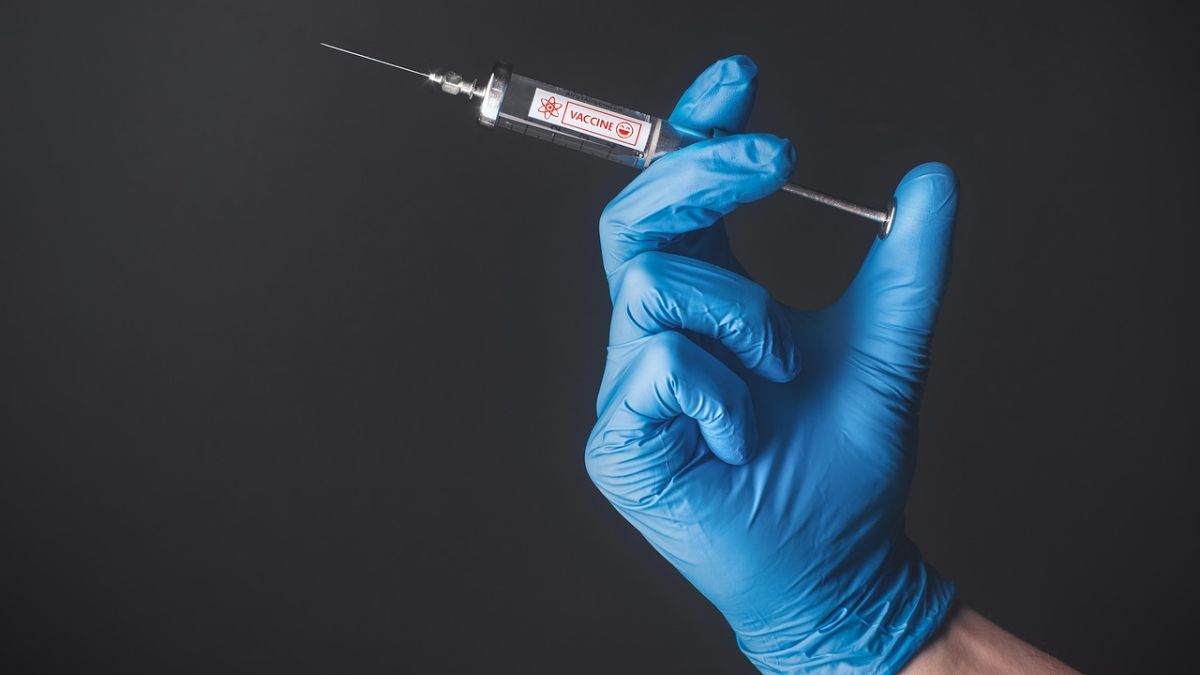A potential breakthrough in the fight against cancer is emerging out of Russia. Scientists say they have developed a vaccine that not only appears safe but has also shown remarkable tumour-fighting ability in early studies.
The vaccine, named Enteromix, reportedly achieved 100 per cent efficacy in preclinical trials, according to Russian news agency TASS.
Veronika Skvortsova, head of the Federal Medical and Biological Agency (FMBA), unveiled the findings at the Eastern Economic Forum, adding that the vaccine is now awaiting official approval (from the Russian Ministry of Health) before it can move forward.
If the results hold true in further testing, the vaccine could mark a dramatic shift in how doctors treat one of the world’s deadliest diseases.
Here’s what we know about it
How does the cancer vaccine work?
Russia’s new cancer vaccine is built on mRNA technology, the same science behind some of the COVID-19 vaccines.
Instead of using weakened or inactivated viruses like traditional vaccines, mRNA vaccines carry a set of genetic instructions. These instructions teach the body’s cells to produce a specific antigen, a protein that the immune system can recognise as a threat. Once the immune system learns to identify that antigen, it can build antibodies to attack it.
In cancer treatment, these antigens appear on tumour cells. The goal is that the immune system, once trained, can target and destroy those cancer cells while leaving healthy cells untouched. That makes it very different from chemotherapy, which often damages both cancerous and healthy tissue.
Editor’s Picks
Professor Siow Ming Lee, consultant medical oncologist at University College London Hospitals NHS Foundation Trust (UCLH), which has been running mRNA cancer vaccine trials in the UK, explained to The Guardian:
“We are now entering this very exciting new era of mRNA-based immunotherapy clinical trials to investigate the treatment of lung cancer. It’s simple to deliver, and you can select specific antigens in the cancer cell, and then you target them. This technology is the next big phase of cancer treatment.”
Also read: ‘A gift of life’: How a cancer drug doubles the survival rate
Unlike vaccines that protect healthy people from disease, mRNA cancer vaccines are designed for patients already living with cancer.
As Dr. Arvind Krishnamurthy, professor and head of surgical oncology at the Cancer Institute, WIA, Chennai, told The Hindu, “The mRNA cancer vaccines are not meant for healthy patients to prevent disease like other vaccines; they are meant to be used in patients who already have cancer, in order to target and treat the tumours.”
Another unique advantage is that these vaccines can be personalised. Each patient’s vaccine can be customised to the particular antigens in their tumour. That means, unlike the COVID-19 vaccine, which targeted a single antigen, the coronavirus spike protein, cancer vaccines can be designed to hit multiple tumour antigens at once.
Also read: Dr explains: Why 60% of liver cancers are preventable and how early action can save lives
How effective is it?
According to TASS, Veronika Skvortsova said the cancer vaccine has gone through years of research, including three years of mandatory preclinical testing.
The results so far look promising. Trials showed the vaccine was safe even with repeated doses and, in some cases, helped tumours shrink or slowed their growth by 60 per cent to 80 per cent, depending on the cancer type. Researchers also reported improved survival rates among test subjects.
The initial focus of the vaccine is on colorectal cancer (cancer of the large intestine). But research is also advancing for other aggressive cancers, including glioblastoma, a fast-growing brain tumour, and several forms of melanoma, such as ocular melanoma, which affects the eye.
The early trials involved 48 volunteers and were conducted by Russia’s National Medical Research Radiological Centre, in partnership with the Engelhardt Institute of Molecular Biology.
While these Phase I results are encouraging, experts caution that larger Phase II and III trials are still needed to confirm whether the vaccine can work effectively across much broader patient groups.
The announcement of the breakthrough was made during the 10th Eastern Economic Forum in Vladivostok, an event that attracted more than 8,400 participants from over 75 countries, according to TASS.
Also read: Can aspirin stop cancer from spreading?
Are there other cancer vaccines?
Yes, Russia isn’t the only country working on cancer vaccines.
In 2023, the UK’s National Health Service (NHS) launched the Cancer Vaccine Launch Pad in collaboration with pharmaceutical company BioNTech. The goal, according to the NHS website, is to “speed up access to mRNA personalised cancer vaccine clinical trials for people who have been diagnosed with cancer” and “accelerate the development of cancer vaccines as a form of cancer treatment.”
In the US, the Food and Drug Administration (FDA) has so far approved only one cancer vaccine, Sipuleucel-T, which was cleared back in 2010 for prostate cancer. This personalised vaccine involved collecting a patient’s immune cells, exposing them to a protein that’s abundant in prostate cancer cells, and then reintroducing the cells to the patient. While innovative, it only extended survival by about four months.
Speaking to The Indian Express, Dr. Abhishek Shankar, oncologist at AIIMS, pointed out:
“Several teams around the world are working on vaccines for different cancers, but they haven’t been very successful. There has been only one cancer vaccine and it didn’t change the treatment much.”
He also warned about affordability, adding, “Whenever a new product is approved, the cost is likely to be very high. Then we will have to see whether there is enough mortality benefit to using it. Will the patients be cured, will they be able to live for several years? This has to be factored in.”
Currently, more than 120 clinical trials for cancer vaccines are underway worldwide, focusing mainly on cancers of the lung, breast, prostate, melanoma, pancreas, and brain, according to Dr. Arvind Krishnamurthy of the Cancer Institute, WIA, Chennai.
If the Russian vaccine clears further regulatory hurdles, it could mark a major milestone in the global fight against cancer.
With input from agencies
End of Article

)

